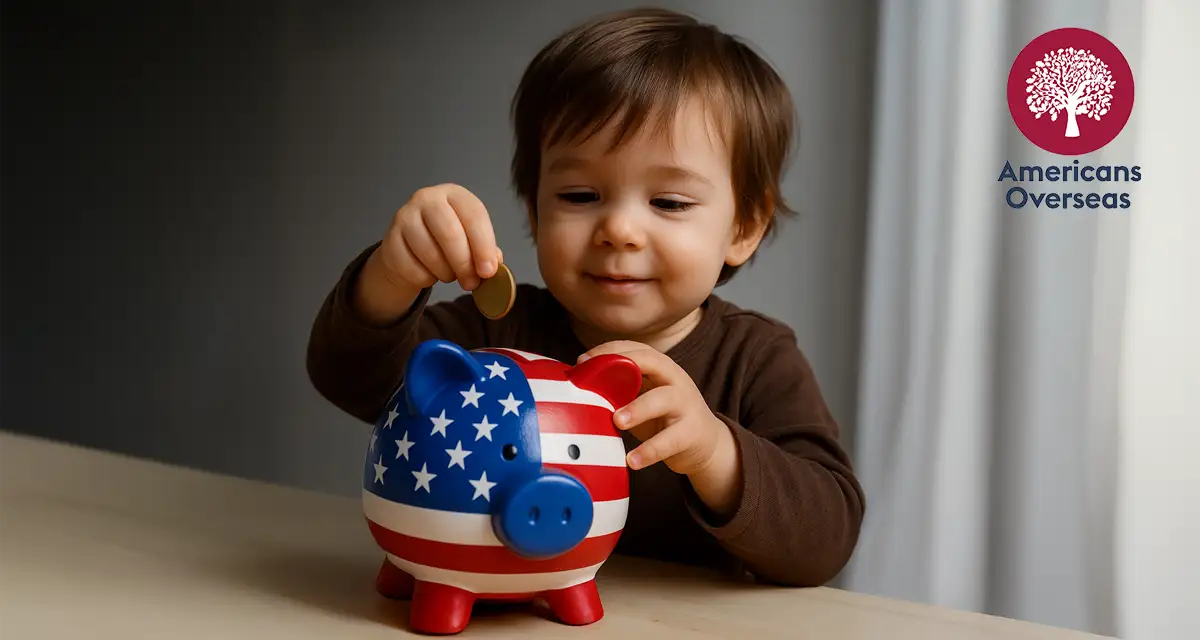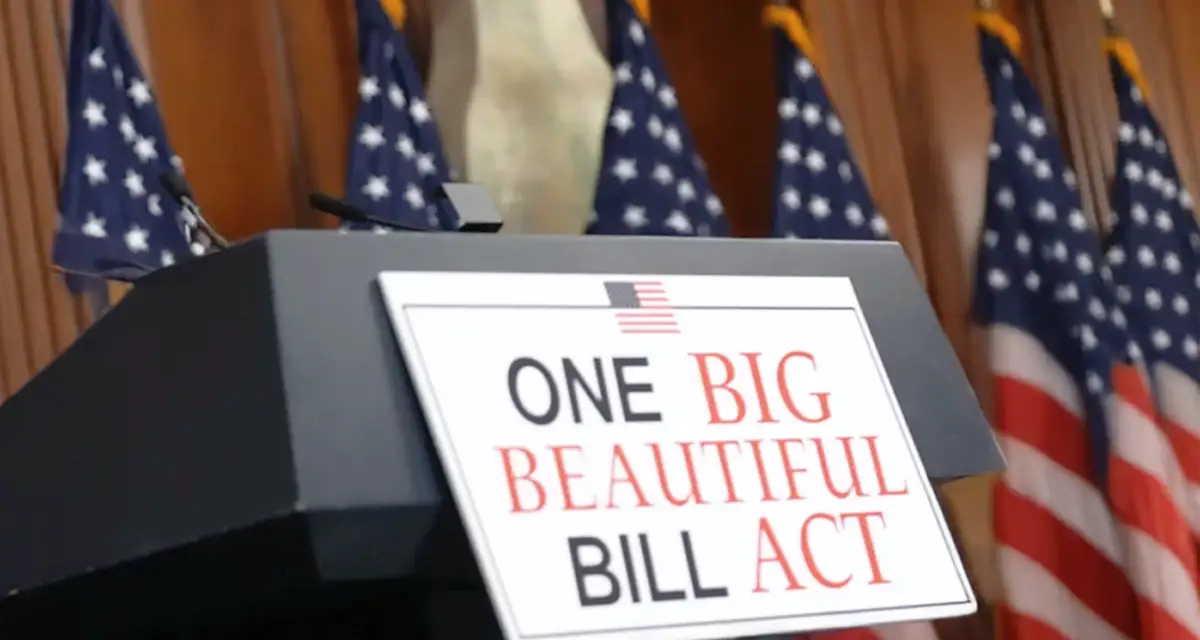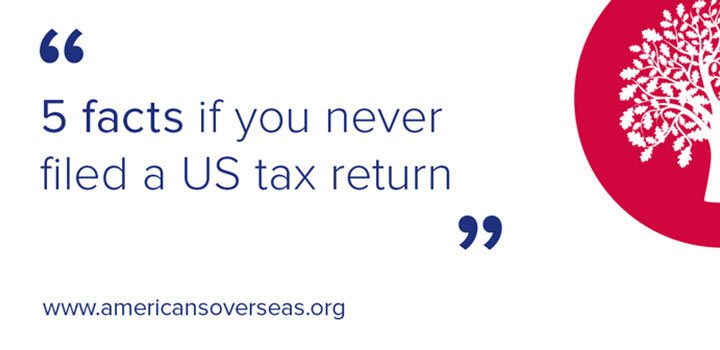
What Are Trump Accounts? New U.S. Savings Accounts for Children (Including Those Living Abroad)

Summary
The Trump Account is designed to give U.S. children a financial head start. If you live outside the United States, it is still possible to open one for your child — but you’ll need to plan carefully. Be sure to obtain an SSN, choose the right financial institution, and understand both U.S. and local tax obligations.
The U.S. government has introduced a new type of savings and investment account for children under the age of 18 who are U.S. citizens. This account, called the Trump Account, is designed to help young Americans build a financial foundation from an early age.
What is a Trump Account?
The Trump Account is part of the One Big Beautiful Bill Act (OBBBA) and functions as a hybrid between a savings account and an investment account. Parents, relatives, or even employers can contribute. Children born between January 1, 2025, and December 31, 2028, are eligible to receive an automatic $1,000 deposit from the federal government.
The program is expected to launch sometime in 2026, but many of the details are still being finalized.
What Do We Know – and What Remains Unclear?
| Topic | Confirmed | Unclear |
|---|---|---|
| Program start | First accounts expected in 2026 | Exact launch date and procedure |
| $1,000 seed deposit | Available for children born 2025–2028 | Whether this will be indexed or adjusted |
| Annual contribution limit | Up to $5,000 per year (incl. employer contributions) | Who is allowed to contribute (relatives, entities) |
| Investment options | Expected to include low-cost index funds or ETFs | Exact funds, limitations, and managers still unknown |
| Withdrawal rules | Likely allowed at age 18 for approved purposes | Definition of “qualified use” and penalties |
| Automatic account creation | Government may open account if parents don’t | How this will work in practice |
Key Considerations for Parents Living Outside the U.S.
If you live outside the U.S. and your child holds U.S. citizenship, there are some additional conditions and challenges to consider:
A Social Security Number (SSN) is Required
Your child must have a valid U.S. Social Security Number (SSN) to open a Trump Account. You can apply for one through your nearest U.S. embassy or consulate.
Not All U.S. Financial Institutions Accept Expats
Some banks and investment firms may refuse to open accounts for clients with a foreign residential address. Choose a provider that allows international account holders and be prepared to submit additional documents (e.g., proof of parentage, ID, address).
Additional Reporting Obligations
Although the Trump Account is U.S.-based, you may still have to report other accounts to the IRS:
-
FBAR (Report of Foreign Bank and Financial Accounts): Required if your foreign bank accounts exceed a certain threshold.
-
Form 8938 (Statement of Specified Foreign Financial Assets): May be required depending on your financial profile.
Local Tax Implications
Even if the Trump Account is tax-advantaged in the U.S., your country of residence may treat the account differently. In some cases, it may be considered taxable wealth or investment income. Always consult a cross-border tax professional to avoid unpleasant surprises.
How to Open a Trump Account: Step-by-Step
1. Check Eligibility
-
Your child is a U.S. citizen
-
Your child has or will obtain an SSN
-
Your child was born between January 1, 2025, and December 31, 2028 (for the $1,000 seed deposit)
2. Wait for Program Launch
-
The first accounts are expected to become available in 2026
-
Monitor announcements from the U.S. Treasury Department and IRS
3. Choose an Approved Financial Institution
-
Select a U.S. bank or brokerage that accepts expat clients
-
Confirm that they do not require a U.S. residential address
4. Prepare the Required Documents
-
SSN of your child
-
Birth certificate
-
Proof of parental authority (if applicable)
-
Proof of address (your foreign residence)
5. Submit the Application
-
Complete the forms provided by the institution
-
Upload or send the necessary documents
-
The government may automatically open an account if parents do not, depending on the implementation
6. Receive the Federal Contribution (if applicable)
-
The $1,000 will be deposited if your child meets the birth criteria and the account is active
7. Manage Contributions and Compliance
-
You may contribute up to $5,000 per year, including employer contributions
-
Stay current on IRS and foreign tax reporting obligations
8. Transfer Control to Your Child at Age 18
-
Once your child turns 18, they can manage the account
-
Withdrawals will be allowed for approved purposes (education, housing, etc.)
Potential Drawbacks and Limitations
-
Opening and managing the account may require more documentation and effort for expat families
-
The return on investment is market-dependent and not guaranteed
-
Misuse of funds could result in penalties
-
Double taxation or reporting conflicts may arise depending on your country of residence
Get informed with Americans Overseas
We, the founders of Americans Overseas, were born in the Netherlands and received our American citizenship through our (American) mother.
When we first learned about the U.S.–Netherlands tax treaty around 2013, we felt disbelief (“this can’t be true”), anger (“how can they do this?”), fear (“will I get fined or have problems?”), and panic (“what should I do?”).
Unfortunately, it is true that there is a U.S. tax obligation for Dutch citizens who acquired American nationality by birth. There was no information from local authorities, the U.S. consulate referred us to the IRS, and the IRS itself was impenetrable.
That is why we started this initiative: to help others with reliable information, to prevent unnecessary panic, and to offer free, no‑obligation assistance. When needed, we can connect you with a network of affordable professionals (accountants) who can help you meet your U.S. tax obligations.
Contact us for more information
Sources and Useful Links – Trump Account
Official source
Useful links from Americans Overseas






